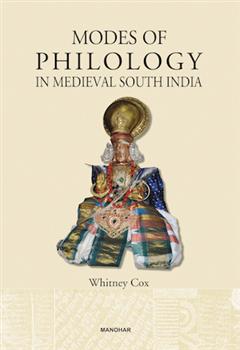Modes of Philology in Medieval South India
Availability :
In Stock
₹ 1,288.20
M.R.P.:₹ 1695
You
Save: ₹406.80 (24.00% OFF)
(Inclusive
of all taxes)
Delivery:
₹ 100.00 Delivery charge
Author:
Whitney Cox
Publisher:
Manohar Publishers
ISBN-13:
9789360809324
Publishing Year:
May 2024
No. of Pages:
208
Weight:
650 grams
Language:
English
Book Binding:
Hardcover











